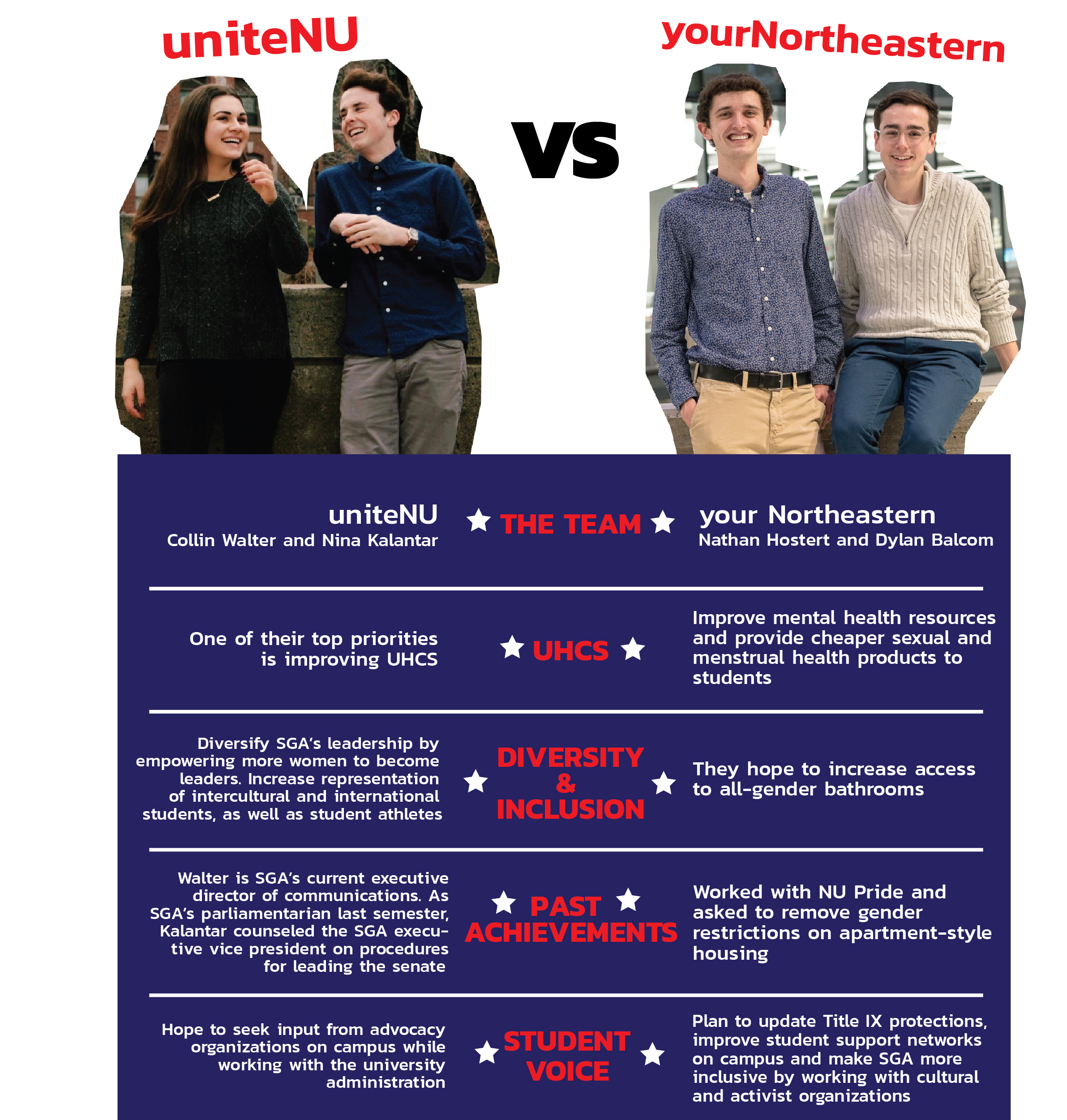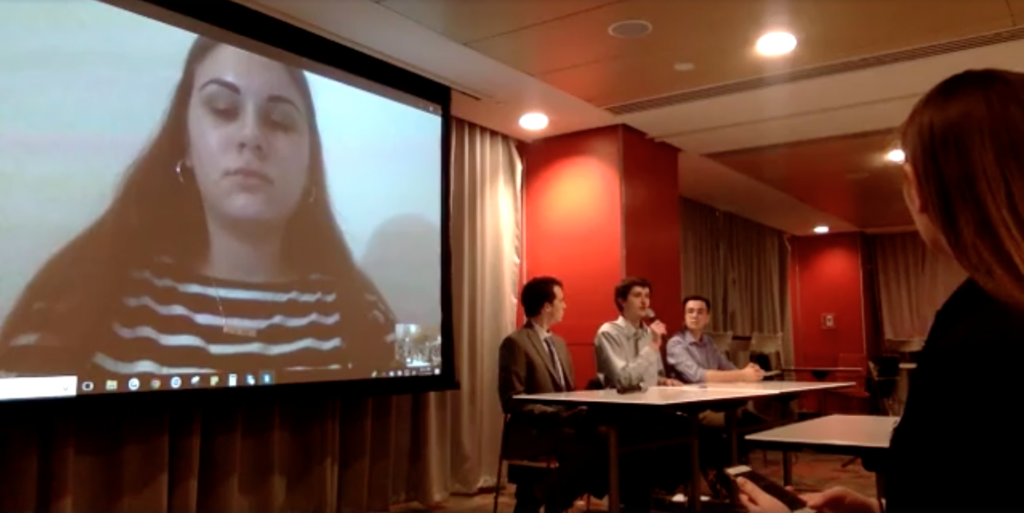By Alyssa Lukpat, news staff
The two slates running for student government president and executive vice president debated campaign issues including diversity in student government, mental health resources and housing March 14 in the Curry Student Center mezzanine.
Collin Walter and Nina Kalantar of uniteNU emphasized the value of their experience on the Student Government Association, or SGA, cabinet and their desire to increase representation of student groups in the SGA Senate. Nathan Hostert and Dylan Balcom of yourNortheastern pointed to policies they have enacted, such as removing styrofoam from campus, and said they want to improve mental health resources and housing accessibility on campus.
Both slates said they hope to seek input from advocacy organizations on campus while working with the university administration. Students have until the end of Thursday to vote on the myNortheastern portal. Results will be announced March 26.

“Our students vocalize what they believe in, and that’s why I’m proud to be a Husky,” Kalantar said. “We need our student government to be an effective outlet for that in enabling vocalization of that advocacy.”
Because uniteNU’s executive vice presidential candidate Kalantar is on co-op in Washington, D.C., she participated via a video call projected on a screen next to the other candidates. The SGA elections committee moderated the debate.
Both slates emphasized the diversity they bring to this campaign. Balcom, who identifies as a gay man, said he has personally experienced the negative impacts of gender restrictions on apartment-style housing Hostert and Balcom were two of the sponsors of a referendum question to remove gender restrictions on apartment-style housing.
The yourNortheastern slate also said they hope to increase access to all-gender bathrooms.
“Dylan [Balcom] and I are both gay men who were both born and raised in conservative states, so we have our fair share of experiences with the LGBTQIA community,” Hostert said.
Kalantar noted she is the only woman running in the election, and emphasized her background as a Muslim and Iranian-American woman. Kalantar said she wants to diversify SGA’s leadership by empowering more women to become leaders and stressed more than half SGA’s current cabinet members are men.
“We should not be having years like this where we are having a lack of women who are taking up elected positions on our SGA,” Kalantar said. “I am disappointed to see that I am the only woman running this year, but I believe that is a testament to the work we need to do to increase minority representation and diversification in our student government.”
Following last year’s historic election of Suchira Sharma and Paulina Ruiz, an all-female of color slate, Walter said electing himself and Kalantar is the best way to continue making progress. Walter said he wants to increase the Senate’s representation of intercultural, international and interfaith students, as well as student athletes and Greek life participants.
“We can’t afford to go backward, especially after breaking the glass ceiling that we did last year with the election of Suchira and Paulina,” Walter said. “If we want to continue progressing forward and have a bright future for Northeastern, then we need to ensure that diversity and inclusion is at the pinnacle of our beliefs both in our Senate and in SGA’s leadership.”
Hostert pointed out that he started SGA’s diversity and inclusion subcommittee this year. To counter Walter and Kalantar’s emphasis on their combined five years of experience in SGA compared to Hostert and Balcom’s four, Hostert and Balcom highlighted the actions they have undertaken in SGA, including their work with NU Pride.
“We are working with every single spiritual, multicultural and LGBTQIA group on campus to bring them to the table and incorporate them into our Student Government Association,” Hostert said, “so we can focus on issues not just that we think are important, but that they think are important, too.”
One change Walter and Kalantar want to bring to SGA is to improve room booking policies on campus. They hope to limit the number of outside organizations who use Northeastern’s cultural spaces.
“We need to make sure cultural spaces are not overrun with events that are entirely unrelated to the purpose of that establishment,” Kalantar said. “We need to be really conscious of protecting cultural spaces on our campus for student groups.”
Hostert and Balcom said one of their top priorities is improving University Health and Counseling Services, or UHCS. In addition to providing more mental health resources, Balcom said they want the center to offer cheaper sexual and menstrual health products to students.
“We want to work with [UHCS executive director] Dr. [Robert] Klein and UHCS to implement a condoms-to-your-door and menstrual health product delivery system,” Balcom said. “A lot of other schools of our caliber have been able to input these so students can request all kinds of condoms and contraceptives or menstrual care products and have them delivered to their on-campus apartment.”
To end the debate, Hostert and Balcom were joined up front by the sponsors of the four referenda questions on the election ballot.









